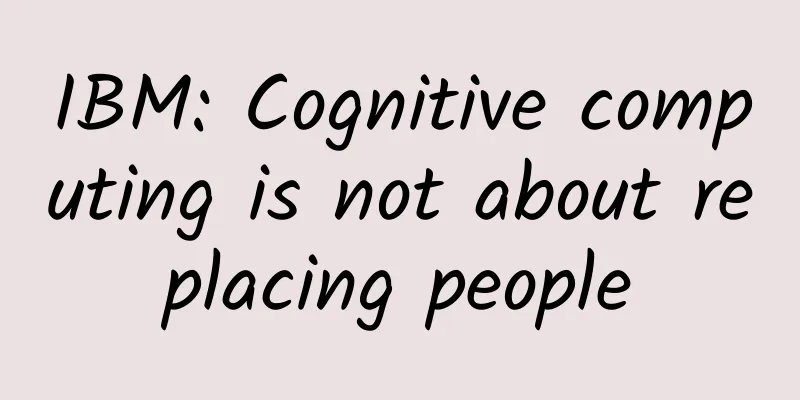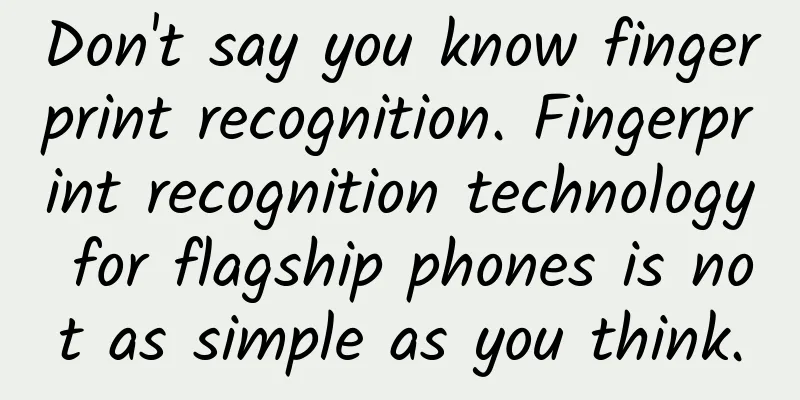IBM: Cognitive computing is not about replacing people

|
Watson, which represents IBM's core technology in the field of cognitive computing, became famous in the American quiz show "Jeopardy!" in February 2011. In this show, Watson defeated the two champions of the show, which was compared with the victory of IBM's "Deep Blue" over chess master Kasparov in 1996 and is considered a milestone in the history of artificial intelligence. However, now that IBM Chairman, President and CEO Ginni Rometty has announced that IBM has transformed into a cognitive solutions and cloud platform company, Watson is no longer just about answering questions. Business opportunities in the cognitive era From a technical perspective, Watson did one thing when it participated in the "Jeopardy!" TV quiz challenge in 2011 - deep question answering using natural language. But question answering is just one of the many capabilities that Watson has. As of October 2015, Watson already has 28 capabilities, including question answering. According to Neil Isford, general manager of IBM's global cognitive business industry solutions, all of Watson's capabilities have now been transformed into digital services or APIs, which are considered building blocks of cognitive capabilities within IBM. The number of IBM Watson APIs, including relationship extraction, personality analysis, sentiment analysis, concept expansion and trade-off analysis, will reach 50 in 2016. Behind this, IBM has no intention of keeping artificial intelligence systems represented by Watson away from public life. This "century-old company" has fully demonstrated its confidence in the commercialization of Watson. The market environment that cannot be ignored is that with the popularization of the Internet of Things, every device is generating data. However, 80% of the data cannot be recognized by computers. This 80% of data includes written materials written in human language, from textbooks and formulas to literary works and conversations; it also includes various types of data captured by the system from listening, speaking and body movements. Survey data predicts that these "unstructured" data are growing rapidly, and by 2020 the total amount of data will exceed 44ZB (Zettabyte, one trillion bytes), accounting for a large part of the total global data. If we look at specific industries, in the next two years, medical data will grow by 99%, of which 88% will be unstructured data, including electronic medical records, test results, medical images, videos, and patient sensors (such as wearable medical devices); government and education data will also grow by 94%, of which 84% will be unstructured data, which comes from various sensors, buildings, roads, fleets, etc.; media industry data will grow by 97%, of which 82% will be unstructured data, which includes books, journals, newspapers and other publications, as well as videos, movies, recordings and online games. Neil Isford believes that computing technology is entering a new era, which we call the cognitive era. As data is growing explosively, the value contained in these data has not yet been tapped, which means unlimited business opportunities in the cognitive era. "In the cognitive era, this is the first time that we can make better use of these intangible data, whether it is our textbooks, or some information, or some documents, data from sensors, or data generated during movement. We can combine the data for mining. We didn't find its value before, but now we can get some business insights from it." Chen Liming, Chairman of IBM Greater China, said: "The cognitive era has begun. In the near future, we will see the entire business model undergoing tremendous changes driven by cognitive technology - from the services and products that each person receives, to the business innovation advantages that entrepreneurs can have, to the transformation of traditional enterprises and industries, and even the leapfrog improvement of the efficiency of economic and social governance. We firmly believe that cognitive business is the general trend." Cognitive computing and artificial intelligence IBM defines the three important characteristics of cognitive systems as understanding, reasoning, and learning. Understanding means quickly understanding structured and unstructured data through perception and interaction, being able to interact with users based on textual materials and perception, and understanding and answering users' questions. Based on understanding, cognitive systems can make assumptions, infer and reveal insights, discover patterns and relationships, and achieve the traditional way of cognition in multiple ways and producing multiple results rather than just one result, to help people make better decisions. In addition, through evidence-based learning capabilities, cognitive systems can quickly extract key information from all documents, enabling them to continuously learn like humans. By tracking the user's own solutions and problem-solving library and evaluation, as well as expert training, they can continuously improve and enhance the ability to solve and answer problems. Although IBM has proposed Watson and cognitive computing for many years, the relationship between cognitive computing and artificial intelligence is still vague in the technology field. This time, IBM is finally willing to come forward and clarify the difference between cognitive computing and artificial intelligence. IBM's view is that the concept of artificial intelligence, which has been popular for more than 20 years, is mainly aimed at making machines behave more like humans from a historical and research perspective. We call it Intelligent Behavior. In this regard, IBM also admitted that its cognitive computing has many similarities with AI from a technical perspective, such as machine learning (Machine Learning), deep learning (Deep Learning) and other aspects. However, IBM's cognitive computing is not intended to replace humans, or in other words, Intelligent Behavior is only one dimension of cognitive computing. When talking about cognitive computing, in addition to being able to make the interaction between humans and computers more natural, it also emphasizes the reasoning part, the self-learning part, and how to combine such capabilities with specific business applications to solve business problems. The latter two dimensions are not the dimensions that traditional AI people care about. They are more concerned about how to behave more like humans. In other words, cognitive computing is not about making machines that think for people, but about increasing human intelligence - cognitive computing systems help people do more by communicating with people's natural language and continuously learning, allowing experts to better gain more insights from massive and complex data and make more accurate decisions. Cognitive computing is broadly defined as acquiring a large amount of different types of data, making inferences based on the information, learning from the interaction between itself and the data and people, and interacting with humans in a more natural way for humans. Its most important purpose is to integrate these capabilities and combine them with specific business application scenarios to solve business problems and help companies achieve business transformation. Today, companies are facing huge challenges brought by big data. Traditional computing methods will miss 80% of the world's information (unstructured data), while cognitive technology can support organizations to discover hidden patterns in data, tap into surprising new business opportunities, and accelerate the discovery of new drugs, new ways to go to the moon, and even discover unknown areas. As a winner of Toutiao's Qingyun Plan and Baijiahao's Bai+ Plan, the 2019 Baidu Digital Author of the Year, the Baijiahao's Most Popular Author in the Technology Field, the 2019 Sogou Technology and Culture Author, and the 2021 Baijiahao Quarterly Influential Creator, he has won many awards, including the 2013 Sohu Best Industry Media Person, the 2015 China New Media Entrepreneurship Competition Beijing Third Place, the 2015 Guangmang Experience Award, the 2015 China New Media Entrepreneurship Competition Finals Third Place, and the 2018 Baidu Dynamic Annual Powerful Celebrity. |
<<: NetQin plans to sell Feiliu. A good ending is the best beginning.
>>: The man-machine battle is about to begin. AlphaGo vs. Lee Sedol. Who do you bet on to win?
Recommend
How to write an operational activity planning and promotion plan?
The article draws on the event operation in Teach...
WeChat now has a small program called "MiXin" for information encryption
Tencent has now launched an information encryptio...
Where is Google heading as its PC search business growth stalls?
Google 's financials have remained largely th...
How much do you know about the jokes in the Spring Festival Gala? Come and understand the stories that have been forgotten for thousands of years
The tadpole wishes you a happy new year! Did ever...
Why do I want to laugh when others laugh?
Planning and production Source: A Brief History P...
4G stimulates operators’ transformation towards the Internet
The half-year financial reports of the three majo...
Yan Hu's Mandala Painting Theory + Practical Painting Psychology Video Course 26 Lectures on Emotional Regulation and Self-Growth
Yan Hu's Mandala Painting Theory + Practical ...
It is impervious to water and fire and can capture comet particles. What is the origin of this material?
Aerogel is the lightest solid material in the wor...
4 channels and strategies for acquiring traffic!
Introduction : In an era of traffic shortage, the...
Is the “four-hour sleep method” reliable? Experts remind →
Recently, Zhang Chaoyang, founder of Sohu, talked...
Prepare for 618! The latest guide to Tencent information flow & QQ advertising!
The biggest e-commerce promotion in the first hal...
A deep dive into iOS 12's new features: A guide to Shortcuts
Apple introduced an exciting new feature called &...
The four major matrices of Tik Tok promotion and operation!
What are the ways to operate a matrix account? Ho...
Short video operation: 8 tips for cover selection
When writing, we all understand that "well b...
Event Operation | What tricks are hidden in Pinduoduo’s red envelopes?
This article will tell you about some of the rout...









